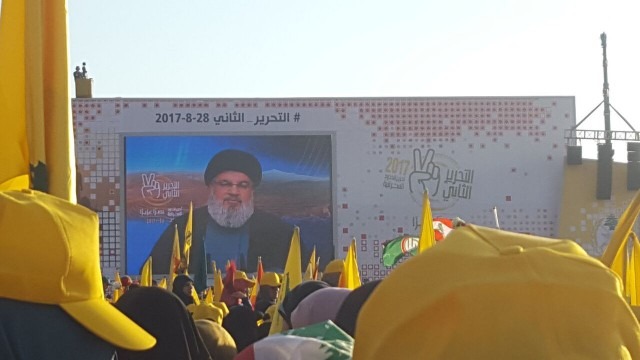As US criticism of Lebanon’s Hezbollah intensified and the Lebanese government was put under economic pressure, French officials offered to form a new government in Lebanon without the presence of Hezbollah. Recently, senior US officials have made direct and unequivocal statements against Hezbollah, saying that there will be no oil extraction in Lebanon during the presidency of Michel Aoun or in the event of Hezbollah’s presence in the government. Furthermore, the International Monetary Fund (IMF) will not help this country either.
Senior US officials have also begun arguments with the French to block their approach in supporting Lebanon. The French are also trying not to anger the United States in order to maintain its investment in the country. They are looking for ways to be compatible with what the United States wants, on the one hand, and Hezbollah would accept it on the other. France even is considering formation of a new government headed by former Prime Minister Saad Hariri.
In this regard, it should be noted that in recent years, France, Britain and the United States have always been involved in the smallest internal issues in Lebanon. Following the assassination of Rafiq al-Hariri, the former Lebanese prime minister in February 2005, efforts by the United States, Britain, France and Saudi Arabia to remove Hezbollah from Lebanon’s political and military scene intensified. It was then that Saad al-Hariri was elected prime minister of Lebanon and was tasked with isolating Hezbollah by using internal anti-Resistance currents; however, given the popular position of the Lebanese Islamic Resistance over the past 15 years, none of the country’s prime ministers have been able to remove Hezbollah from the Lebanese political scene. After Lebanon’s 33-day war with the Zionist regime in 2006 and Hezbollah’s brilliant military victory over the Israeli army, many conspiracies were launched by the United States and the West and US regional allies against Hezbollah, culminating in a major rift between the two powerful parties of March 14 and March 8.
That’s why Lebanese President Michel Aoun finally nominated Mr. Hassan Diab, a moderate political figure, as his first prime minister to prevent further escalation of tensions between Lebanese political currents. Since March 8, which is affiliated with the Islamic Resistance, holds the largest number of parliamentary seats, a number of Hezbollah-affiliated ministers have been in Hassan Diab’s government, a legal right of the Islamic Resistance to run for office. It was then that economic pressure and incitement began to provoke street riots and overthrow the government of Hassan Diab. The United States, Saudi Arabia and France cut off financial aid and prevented the International Monetary Fund from paying $6 billion in aid.
Now all four countries, the United States, Britain, France and Saudi Arabia, are trying to create conditions for the government of Hassan Diab to become ineffective through economic pressure from outside and to provoke the people inside, so that the Lebanese Hezbollah will be put under pressure.
But these countries need to keep in mind that Lebanon’s Hezbollah has a deep popular base, and that the Lebanese militant movement simply cannot be removed from the political arena. It also shows that Hezbollah won a majority of seats in the Lebanese parliamentary elections, indicating that Hezbollah is more popular than other Lebanese political currents.
Finally, one of the options for the United States and the West is for the government of Hassan Diab to surrender to popular pressure, and for Mr. Michel Aoun to be forced to present a counter-Resistance figure as prime minister in return for financial aid from the United States and the West. However, this process will take a long time, because any prime minister who opposes Hezbollah will not receive a vote of confidence from the Lebanese parliament. For this reason, it seems that if the government of Hassan Diab resigns, Lebanon will enter a long-term political vacuum, which may lead to a physical confrontation between the supporters and opponents of the March 8 and March 14 currents.










0 Comments